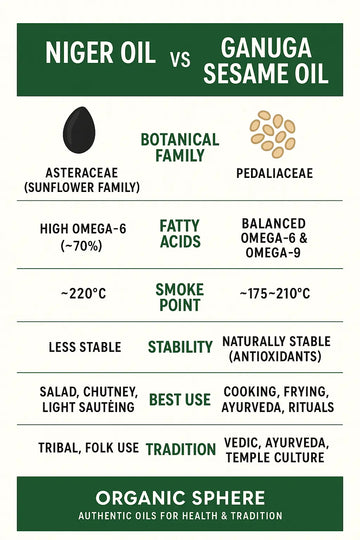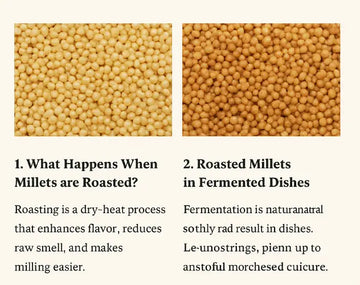
Adopting mindful eating practices and choosing sustainable food options are becoming increasingly crucial. The interconnection between what we eat and how it affects our overall well-being and the planet cannot be overstated. Mindful eating involves being present and fully engaged with the act of eating, allowing us to savor our food, make healthier choices, and develop a better relationship with what we consume. On the other hand, sustainable food choices focus on reducing our environmental impact, supporting local farmers, and promoting ethical food production methods. By combining mindful eating with sustainable food practices, we not only nurture our bodies but also contribute to a healthier planet for future generations. This introduction sets the stage for exploring the profound benefits and implications of intertwining mindful eating and sustainable food in our daily lives.
The Interconnection of Mindful Eating and Sustainable Food
Exploring the Relationship Between Mindful Eating and Sustainable Food Choices
The choices we make about the food we consume not only affect our health but also have a significant impact on the environment. The interconnection between mindful eating and sustainable food practices is a topic that is gaining more attention as people become increasingly aware of the repercussions of their dietary habits.
Exploring the Relationship Between Mindful Eating and Sustainable Food Choices.
Mindful eating is a practice that involves being present and attentive to the eating experience. It emphasizes the quality of food, the sensations while eating, and the effects on the body. When individuals practice mindful eating, they tend to make more conscious food choices, opting for nutritious and whole foods over processed and unhealthy options. This shift towards mindful eating not only benefits personal health but also extends to the larger food system.
Sustainable food choices go hand in hand with mindful eating. By choosing sustainably sourced foods, individuals support agricultural practices that are environmentally friendly, promote animal welfare, and benefit local communities. Sustainable food production aims to minimize waste, reduce the carbon footprint, and conserve natural resources. When individuals consider the environmental impact of their food choices, they contribute to a more sustainable food system that can support future generations.
Impact of Food Production on Environment
The food production industry has a significant impact on the environment. From deforestation for agriculture to greenhouse gas emissions from livestock farming, the way we produce food plays a crucial role in climate change and environmental degradation. By opting for sustainably produced foods and supporting eco-friendly farming practices, individuals can help mitigate these negative effects and promote a healthier planet.
The interconnection of mindful eating and sustainable food choices highlights the importance of considering not just the nutritional value of food but also its broader impact on the world around us. By making conscious decisions about what we eat and where our food comes from, we can contribute to a more sustainable and environmentally friendly food system for the future.
Benefits of Mindful Eating and Sustainable Food Choices
Where convenience often trumps health and sustainability, making mindful choices when it comes to food is more important than ever. By incorporating mindful eating practices and opting for sustainable food options, individuals can not only benefit their own health but also contribute to the well-being of the environment.
Health Advantages of Mindful Eating
Mindful eating involves paying full attention to the experience of eating and enjoying the taste, texture, and aroma of food. This practice not only promotes a healthier relationship with food but also has numerous health benefits. Research suggests that mindful eating can aid weight management, reduce binge eating, and improve digestion. By being more aware of what and how we eat, we can make better food choices and savor our meals, leading to improved overall well-being.
Environmental Benefits of Sustainable Food Options
The food choices we make have a significant impact on the environment. Opting for sustainable food options, such as locally sourced produce, organic foods, and plant-based meals, can help reduce our carbon footprint and support environmental conservation. Sustainable food practices promote biodiversity, reduce water usage, and minimize the use of harmful chemicals, benefiting both the planet and future generations.
Mental Well-being and Mindful Eating
In addition to physical health benefits, mindful eating can also positively impact mental well-being. Taking the time to appreciate and savor each bite can reduce stress levels, improve mood, and enhance overall emotional wellness. Mindful eating practices, such as eating without distractions and listening to your body's hunger cues, can help cultivate a sense of mindfulness and presence during meals.
Social Aspects of Sustainable Food Choices
Choosing sustainable food options can also have social benefits. Supporting local farmers and producers not only helps the community's economy but also fosters a sense of connection to where our food comes from. By prioritizing sustainable food sources, individuals can contribute to building a more resilient and equitable food system that supports both people and the planet.
By embracing mindful eating and choosing sustainable food options, individuals can not only enhance their health and well-being but also play a part in creating a more sustainable and environmentally-friendly food system. Let's make conscious food choices that nourish both our bodies and the planet with every meal.
Incorporating Mindful Eating and Sustainable Food Practices
It can be easy to overlook the importance of mindful eating and sustainable food practices. However, being more conscious of what we eat and where our food comes from can have a significant impact on our health and the environment. This blog section will delve into practical tips for adopting mindful eating habits, how to identify sustainable food products, and highlight Organic Sphere's eco-friendly initiatives.
Practical Tips for Adopting Mindful Eating Habits
Mindful eating is not just about what you eat but also how you eat. It's about being fully present and engaged with your food, savoring each bite, and appreciating the nourishment it provides. To practice mindful eating, try to eat without distractions like your phone or TV, chew slowly, and listen to your body's hunger and fullness signals. By being more mindful during meals, you can enhance your eating experience and make healthier food choices.
Identifying Sustainable Food Products
When it comes to choosing sustainable food products, it's essential to consider factors like the sourcing of ingredients, production methods, and packaging. Look for products that bear labels such as USDA Organic, Rainforest Alliance Certified, or Certified Humane. These certifications indicate that the food has been produced in an environmentally and socially responsible manner. Additionally, opt for locally sourced foods whenever possible to reduce carbon emissions associated with transportation.
Organic Sphere's Eco-Friendly Initiatives
Organic Sphere is committed to promoting sustainability throughout its operations. In addition to sourcing organic ingredients, they also prioritize fair trade practices to support farmers and producers in developing countries. Furthermore, Organic Sphere actively participates in community initiatives to educate consumers about the benefits of organic and sustainable food choices. By partnering with organizations that share their values, they aim to create a more environmentally conscious food system.
Incorporating mindful eating and sustainable food practices into our daily routines can have far-reaching benefits for both our well-being and the planet. By making conscious choices about the food we eat and supporting businesses that prioritize sustainability, we can contribute to a healthier and more environmentally friendly food system. Let's embrace mindful eating and sustainable food practices as integral parts of our lifestyle choices.
Overcoming Challenges and Sustaining Mindful Eating Habits
Maintaining mindful eating habits can be challenging. However, it is essential to overcome obstacles and sustain these practices for a healthier lifestyle. This blog section will discuss common obstacles encountered in adopting mindful eating and provide strategies to maintain sustainable practices.
Common Obstacles in Mindful Eating Adoption
-
Time Constraints : Busy schedules often lead to rushed meals and mindless eating. Finding time to sit down and savor each bite can be a challenge.
-
External Distractions : Electronic devices, work-related stress, and multitasking can divert attention from the act of eating mindfully.
-
Emotional Eating : Using food as a coping mechanism for emotions like stress, sadness, or boredom can hinder mindful eating habits.
-
Lack of Awareness : Many individuals are unaware of what mindful eating entails or its benefits, leading to difficulties in adopting the practice.
Strategies to Maintain Sustainable Practices
-
Mindful Meal Planning : Allocate time for meal preparation, plan balanced meals, and create a peaceful eating environment.
-
Practice Gratitude : Express gratitude for the food on your plate, acknowledging the effort that went into its production.
-
Mindful Eating Reminders : Set reminders or cues to pause and reflect on your eating experience during meals.
-
Slow Down Eating Pace : Eating slowly allows your body to register fullness, promoting mindful consumption and better digestion.
-
Engage Senses : Focus on the textures, flavors, and aromas of your food to enhance the sensory experience of eating mindfully.
-
Mindful Snacking : Choose nutritious snacks mindfully, avoiding impulsive eating and opting for nourishing options.
By recognizing these common obstacles and implementing sustainable strategies, individuals can overcome challenges and nurture mindful eating habits for improved well-being. Embracing a mindful approach to eating not only fosters a healthier relationship with food but also enhances overall wellness and satisfaction with meals.
Importance of Mindful Eating
Mindful eating goes beyond the act of consuming food; it involves being fully present and engaged during meals. By paying attention to what, when, and how we eat, individuals can develop a deeper appreciation for food and its role in nourishing the body. This heightened awareness can lead to better food choices, improved digestion, and a more positive relationship with eating.
Mindful Eating and Weight Management
In addition to promoting overall well-being, mindful eating can also support weight management goals. By listening to hunger cues, recognizing fullness, and avoiding distracted eating, individuals are more likely to consume appropriate portions and make healthier food choices. This mindful approach can help prevent overeating, emotional eating, and unnecessary snacking, contributing to a balanced and sustainable weight management strategy.
Cultivating Mindful Eating Habits
Cultivating mindful eating habits is a journey that requires practice and patience. Start by incorporating small mindful eating practices into your daily routine, such as taking a few deep breaths before meals, chewing slowly, and savoring each bite. Over time, these habits can become second nature, transforming your relationship with food and enhancing your overall well-being.
Conclusion
Overcoming challenges in adopting mindful eating and sustaining these practices is key to reaping the numerous benefits associated with a mindful approach to food. By understanding common obstacles, implementing sustainable strategies, and embracing the principles of mindful eating, individuals can cultivate a healthier relationship with food, promote well-being, and enjoy a more satisfying eating experience.
Future Trends in Mindful Eating and Sustainable Food
Where convenience often trumps health considerations, a growing movement towards mindful eating and sustainable food practices is gaining momentum. This shift is not only towards personal health but also towards environmental sustainability. Let's delve into the emerging trends in mindful eating, innovations in sustainable food consumption, and Organic Sphere's remarkable contribution to promoting sustainable practices.
Emerging Trends in Mindful Eating
As people become more conscious of the connection between food choices and overall well-being, mindful eating has emerged as a significant trend. This practice involves being fully present while eating, savoring each bite, and listening to one's body's hunger and fullness cues. Mindful eating not only promotes healthier food choices but also fosters a positive relationship with food.
Innovations in Sustainable Food Consumption
In the quest for sustainable food practices, innovations are key to reducing the environmental impact of food production and consumption. From plant-based meat alternatives to vertical farming, the food industry is witnessing a wave of innovations aimed at creating a more sustainable food system. These innovations not only address issues such as food waste and carbon footprint but also pave the way for a more environmentally friendly future.
Organic Sphere's Contribution to Sustainable Practices
Organic Sphere, a leading advocate for sustainable food practices, has been at the forefront of promoting eco-friendly initiatives. One of the notable contributions of Organic Sphere is its use of eco-friendly bags to reduce plastic waste. By encouraging customers to opt for reusable bags, Organic Sphere is taking a proactive step towards minimizing the use of single-use plastics. Additionally, Organic Sphere emphasizes the importance of sourcing organic produce and supporting local farmers to promote sustainability in the food supply chain.
The future of mindful eating and sustainable food is promising, with a growing awareness of the impact of our food choices on both personal well-being and the environment. By embracing mindful eating practices, supporting sustainable food innovations, and following the lead of eco-conscious brands like Organic Sphere, we can pave the way for a healthier, more sustainable future.
Conclusion
Embracing mindful eating practices and choosing sustainable food options are crucial steps towards improving our overall well-being and contributing to a healthier planet. By being more conscious of our food choices and their impact on both our bodies and the environment, we can work towards a more sustainable future for generations to come. Let's continue to educate ourselves, make informed decisions, and support initiatives that promote mindful eating and sustainable food systems. Together, we can make a significant difference in creating a healthier world for all.





